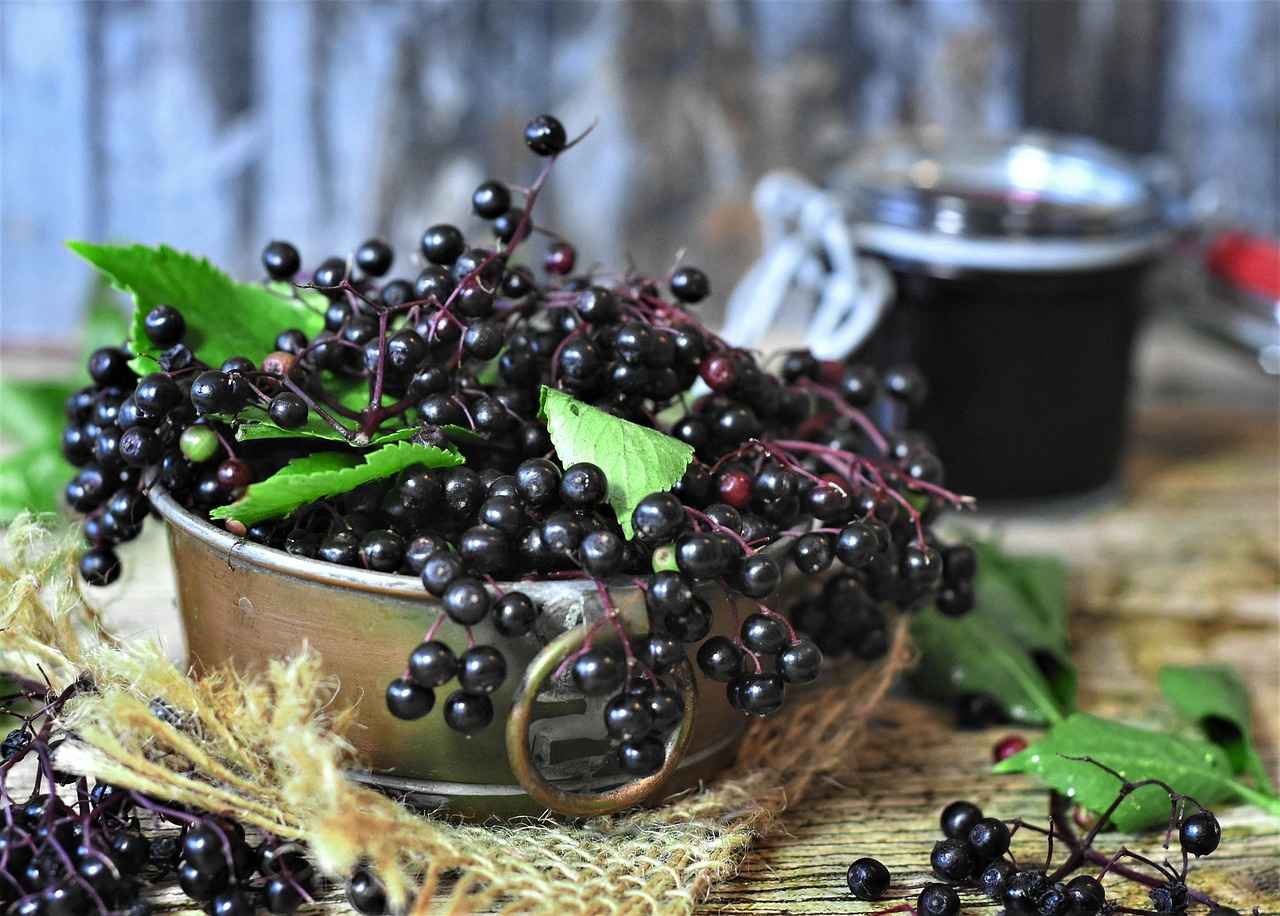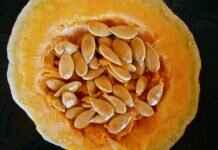Harnessing the Functional Health Benefits of Elderberry Extract
This article delves into the numerous health benefits of elderberry extract, highlighting its antioxidant properties, immune support, and potential applications in traditional medicine. Discover how elderberry can significantly enhance your well-being.
1. What is Elderberry Extract?
Elderberry extract is obtained from the berries of the Sambucus tree, which is celebrated for its rich nutrient profile and health-promoting properties. Understanding its origins and uses can deepen appreciation for its medicinal benefits.
2. Nutritional Profile of Elderberry
Elderberry is a powerhouse of essential vitamins, antioxidants, and dietary fiber. This section explores its key nutrients and how they contribute to overall health.
- 2.1 Vitamins and Minerals
- Vitamin C Benefits: Vital for immune function and skin health, Vitamin C is abundant in elderberry extract.
- Antioxidants in Elderberry: Rich in antioxidants, elderberry combats oxidative stress and protects cells from damage.
- 2.2 Dietary Fiber: The dietary fiber in elderberry supports digestive health and aids in weight management.
3. Immune Support with Elderberry Extract
Elderberry is renowned for its immune-boosting capabilities. This section discusses how it helps the body combat infections.
- 3.1 How Elderberry Affects Viral Infections: Research indicates that elderberry may reduce the duration and severity of cold and flu symptoms.
- 3.2 Clinical Studies on Elderberry: Numerous studies validate the efficacy of elderberry in enhancing immune health.
4. Traditional Uses of Elderberry
With a rich history in traditional medicine, elderberry has been used to address various ailments across cultures.
- 4.1 Elderberry in Folk Medicine: Historically, it has been utilized for treating coughs, fevers, and inflammation.
- 4.2 Modern Adaptations of Elderberry Use: Today, elderberry is available in syrups and capsules, retaining its traditional benefits.
5. How to Incorporate Elderberry Extract into Your Diet
Incorporating elderberry extract into your daily routine can be beneficial. Here are some practical tips:
- 5.1 Elderberry Syrup Recipes: Homemade elderberry syrup is a delicious way to enjoy its benefits.
- 5.2 Dosage Recommendations: Understanding the appropriate dosage is crucial for safety and effectiveness.
6. Potential Side Effects and Precautions
While generally safe, awareness of potential side effects is important. Common concerns include:
- 6.1 Allergies and Interactions: Some individuals may experience allergic reactions; learn about possible interactions with medications.
- 6.2 Recommended Precautions: Precautions should be taken, especially for pregnant or nursing women and those with underlying health conditions.
7. Elderberry Extract vs. Other Supplements
Elderberry is one of many health supplements available. This section compares its benefits with other popular herbal remedies.
- 7.1 Elderberry vs. Echinacea: Explore the differences and similarities between these two immune support supplements.
- 7.2 Elderberry vs. Vitamin C Supplements: Discuss how elderberry complements or contrasts with vitamin C supplementation.
8. The Future of Elderberry Research
Ongoing research continues to reveal the potential benefits of elderberry. This section highlights emerging studies and future directions in elderberry research.
- 8.1 Innovations in Elderberry Products: Discover the latest advancements in elderberry formulations.
- 8.2 Areas for Further Study: Identify gaps in current research and areas for further investigation.
9. Conclusion: Embracing Elderberry for Health
In conclusion, elderberry extract offers a range of health benefits, particularly for immune support. Incorporating it into your wellness routine can enhance overall health and vitality.
9.1 Final Thoughts on Elderberry: Elderberry is a potent natural remedy with a rich history in health practices.
9.2 Encouragement to Explore Elderberry: Consider adding elderberry to your health regimen to explore its benefits further.
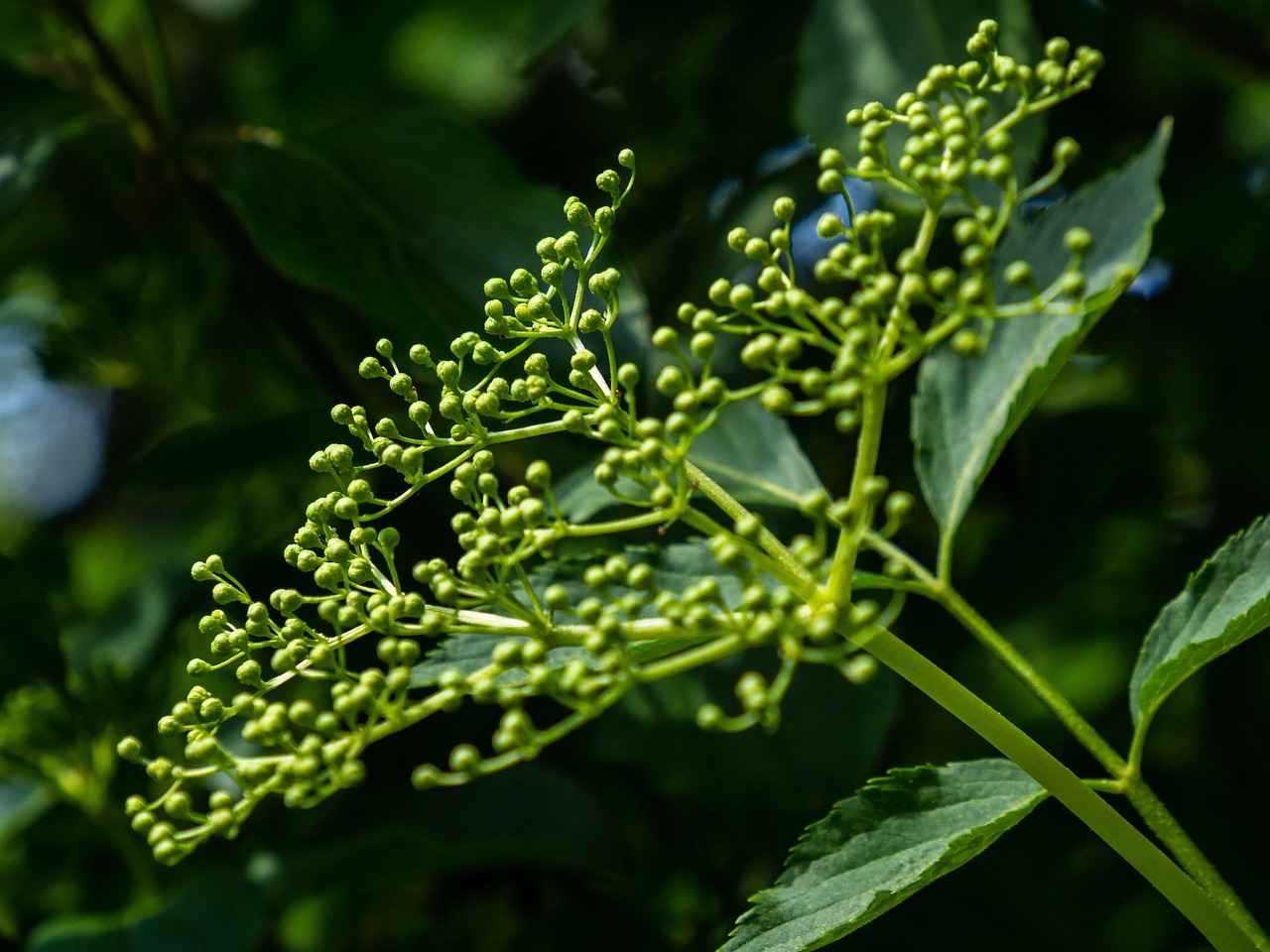
1. What is Elderberry Extract?
Elderberry extract is a natural product derived from the berries of the Sambucus tree, which has been celebrated for centuries due to its rich nutrient profile and potential health benefits. Understanding its origins not only helps us appreciate its medicinal properties but also highlights its significance in traditional and modern medicine.
The Sambucus nigra, commonly known as the European elderberry, is the most widely used species for extracting elderberry products. The berries are typically dark purple to black and are known for their sweet-tart flavor. Rich in vitamins, antioxidants, and various phytochemicals, elderberries have been linked to numerous health benefits.
One of the standout features of elderberry extract is its high antioxidant content, particularly flavonoids, which play a crucial role in neutralizing harmful free radicals in the body. These antioxidants are vital for maintaining overall health and wellness, as they help reduce oxidative stress and inflammation.
Moreover, elderberry is renowned for its immune-boosting properties. Research indicates that elderberry extract can enhance the immune response, potentially reducing the severity and duration of colds and flu symptoms. This makes it a popular choice for individuals looking to support their immune health, especially during the colder months.
In addition to its immune benefits, elderberry has a long history of use in traditional medicine for treating various ailments, including respiratory issues and inflammation. Many cultures have utilized elderberry in different forms, from syrups to teas, showcasing its versatility and efficacy.
In conclusion, elderberry extract is not just a supplement but a powerhouse of nutrients that can contribute significantly to health and wellness. Understanding its origins and benefits allows us to harness its full potential in our daily lives.
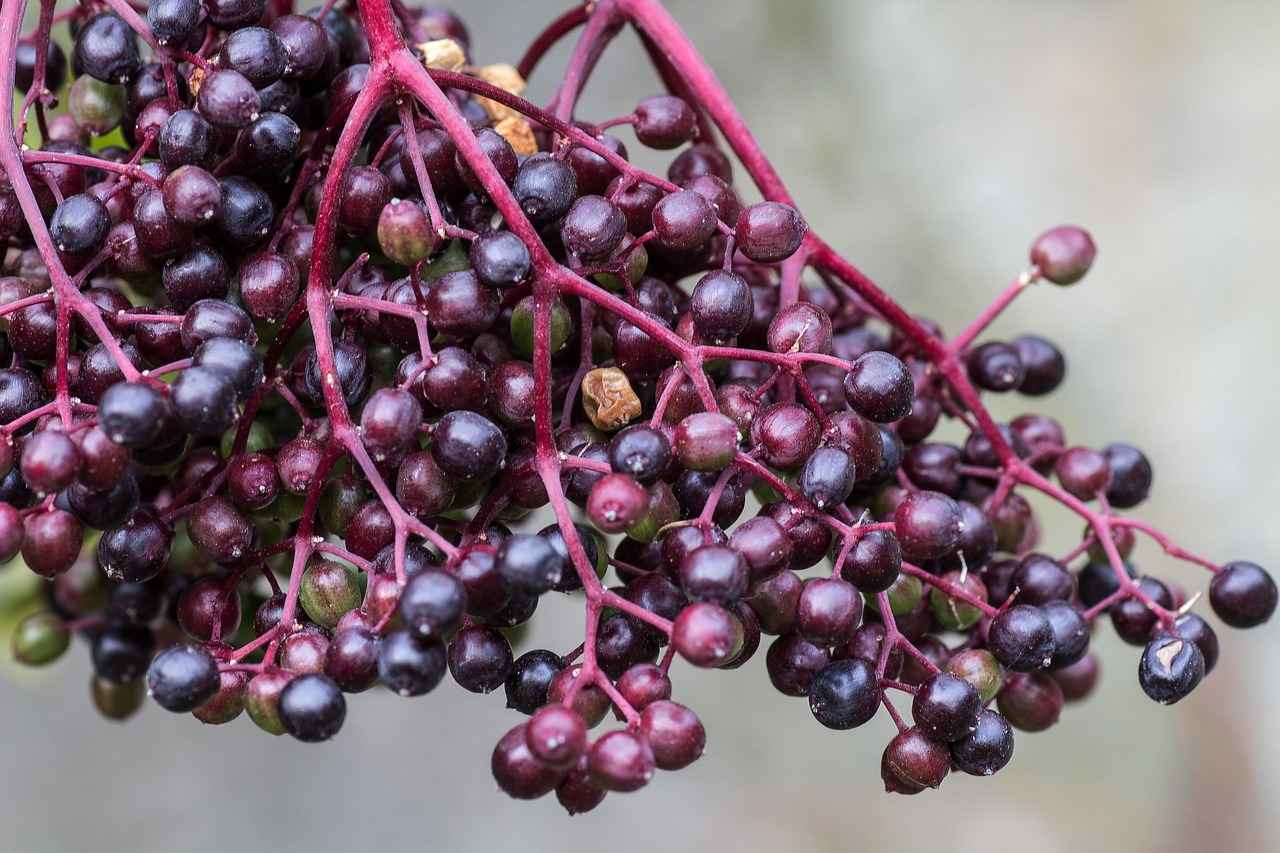
2. Nutritional Profile of Elderberry
Elderberry is not just a flavorful addition to your diet; it is a powerhouse of nutrients that can significantly contribute to your health and wellness. This section will explore the nutritional profile of elderberry, highlighting its key vitamins, antioxidants, and dietary fiber that play essential roles in maintaining optimal health.
- Vitamins: Elderberry is rich in essential vitamins, particularly Vitamin C and Vitamin A. These vitamins are crucial for supporting the immune system and promoting healthy skin.
- Antioxidants: The berries are loaded with antioxidants, such as flavonoids, which help protect the body from oxidative stress and reduce inflammation.
- Dietary Fiber: Elderberry is a good source of dietary fiber, which aids in digestion and can help in weight management.
The presence of Vitamin C in elderberry is especially noteworthy as it is vital for the synthesis of collagen, which supports skin health and wound healing. Additionally, it enhances the immune response, helping the body fend off infections.
Moreover, the antioxidants found in elderberry, such as anthocyanins, combat free radicals in the body. This action is essential for cell protection and may lower the risk of chronic diseases.
Incorporating elderberry into your diet can also provide a significant amount of dietary fiber. Fiber is known to promote digestive health by facilitating regular bowel movements and supporting a healthy gut microbiome. Furthermore, high-fiber foods can contribute to feelings of fullness, which is beneficial for those looking to manage their weight.
In summary, the nutritional profile of elderberry is impressive, with a combination of vitamins, antioxidants, and dietary fiber that collectively support overall health and wellness. By understanding these nutrients, you can better appreciate the health benefits that elderberry offers.
2.1 Vitamins and Minerals
Elderberry is not just a flavorful addition to your diet; it is also a powerhouse of essential vitamins and minerals that contribute significantly to your overall health. In this section, we will explore the vital nutrients found in elderberry, focusing on their roles and benefits.
| Nutrient | Benefits |
|---|---|
| Vitamin C | Supports immune function, promotes collagen production, and enhances skin health. |
| Vitamin A | Essential for vision, immune function, and skin health. |
| Iron | Important for red blood cell production and oxygen transport in the body. |
| Potassium | Helps regulate blood pressure, fluid balance, and muscle contractions. |
Vitamin C is particularly noteworthy due to its role in boosting immune health. It helps the body fend off infections and supports the production of white blood cells, which are crucial for fighting off pathogens. Additionally, Vitamin C is vital for the synthesis of collagen, a protein that maintains skin elasticity and overall appearance.
Vitamin A plays a critical role in maintaining healthy vision and skin. It is also essential for immune system function, helping the body to respond effectively to infections.
Furthermore, elderberry is rich in antioxidants, which help combat oxidative stress and protect cells from damage. This makes elderberry not only a source of essential vitamins but also a valuable ally in promoting long-term health.
In conclusion, the nutritional profile of elderberry, particularly its vitamins and minerals, underscores its importance as a beneficial addition to your diet. By incorporating elderberry into your routine, you can harness its health-enhancing properties effectively.
2.1.1 Vitamin C Benefits
Vitamin C is an essential nutrient that plays a significant role in maintaining overall health and well-being. This vitamin is not only vital for the immune system but also contributes to skin health and collagen production. In the context of elderberry extract, Vitamin C serves as a crucial component, enhancing its health benefits and effectiveness.
One of the primary functions of Vitamin C is its ability to support the immune system. It helps stimulate the production of white blood cells, which are essential for fighting off infections. Studies have shown that adequate Vitamin C intake can reduce the duration and severity of colds and flu, making elderberry, which is rich in this vitamin, an excellent choice during the cold season.
Moreover, Vitamin C is known for its role in promoting skin health. It aids in the synthesis of collagen, a protein that helps maintain skin elasticity and firmness. This is particularly important as we age, as collagen production naturally declines. By incorporating elderberry extract into your diet, you can enhance your skin’s appearance and reduce signs of aging.
| Vitamin C Benefits | How It Helps |
|---|---|
| Immune Support | Boosts white blood cell production |
| Skin Health | Promotes collagen synthesis |
| Antioxidant Properties | Protects cells from oxidative stress |
In addition to these benefits, Vitamin C acts as a powerful antioxidant, helping to protect the body from oxidative stress caused by free radicals. This protection is crucial for maintaining cellular health and preventing chronic diseases.
In summary, the inclusion of Vitamin C in elderberry extract significantly amplifies its health benefits, making it a valuable addition to your health regimen. By understanding the importance of this vitamin, you can better appreciate the role of elderberry in supporting your immune system, enhancing skin health, and providing antioxidant protection.
2.1.2 Antioxidants in Elderberry
Antioxidants in Elderberry play a crucial role in promoting overall health and well-being. These powerful compounds are known for their ability to combat oxidative stress, a process that can lead to cellular damage and various health issues. Elderberry, derived from the berries of the Sambucus tree, is particularly rich in antioxidants, making it a popular choice for health enthusiasts.
Oxidative stress occurs when there is an imbalance between free radicals and antioxidants in the body. Free radicals are unstable molecules that can cause damage to cells, proteins, and DNA, leading to chronic diseases such as heart disease, diabetes, and cancer. By incorporating elderberry into your diet, you can help neutralize these harmful free radicals.
| Antioxidant Compounds in Elderberry | Health Benefits |
|---|---|
| Flavonoids | Support cardiovascular health and reduce inflammation. |
| Vitamin C | Boosts the immune system and promotes skin health. |
| Phenolic Acids | Provide anti-inflammatory properties and support metabolic health. |
Research indicates that the antioxidants found in elderberry can enhance the body’s defense mechanisms. For example, a study published in the Journal of Functional Foods highlighted that elderberry extract significantly increased antioxidant activity in the body, thereby reducing oxidative stress markers.
Moreover, these antioxidants not only protect cells from damage but also support overall wellness by improving immune function. Regular consumption of elderberry can lead to a stronger immune response, helping the body to fend off infections and illnesses more effectively.
In conclusion, the antioxidants in elderberry serve as a powerful ally in maintaining health. By incorporating elderberry into your daily routine, you can take proactive steps towards reducing oxidative stress and enhancing your overall well-being.
2.2 Dietary Fiber
Dietary Fiber: The Unsung Hero of Digestive Health
The inclusion of dietary fiber in our diets is essential for maintaining optimal digestive health. Among various sources of dietary fiber, elderberry stands out due to its unique nutrient profile and health benefits. This section delves into the significance of dietary fiber and how elderberry plays a crucial role in promoting digestive wellness and aiding in weight management.
1. Understanding Dietary Fiber
Dietary fiber consists of plant-based carbohydrates that our bodies cannot digest. It is primarily categorized into two types: soluble fiber and insoluble fiber. Both types are vital for different aspects of health:
- Soluble Fiber: This type dissolves in water and can help lower blood cholesterol and glucose levels.
- Insoluble Fiber: This type does not dissolve in water and aids in moving food through the digestive tract, preventing constipation.
2. The Role of Elderberry in Digestive Health
Elderberry is not only rich in vitamins and antioxidants but also provides a significant amount of dietary fiber. This fiber content contributes to:
- Improved Digestion: The insoluble fiber in elderberry helps promote regular bowel movements, reducing the risk of constipation.
- Weight Management: Foods high in fiber, like elderberry, can enhance feelings of fullness, which may help in controlling appetite and reducing overall calorie intake.
3. Additional Benefits of Fiber-Rich Foods
Incorporating fiber-rich foods into your diet not only supports digestive health but also offers various other benefits:
- Heart Health: High fiber intake is linked to lower cholesterol levels and reduced risk of heart disease.
- Blood Sugar Control: Fiber slows down glucose absorption, helping to stabilize blood sugar levels.
Conclusion: Embracing dietary fiber, particularly from sources like elderberry, is a simple yet effective way to enhance your overall health. By making fiber-rich foods a staple in your diet, you can support your digestive system and contribute to effective weight management.
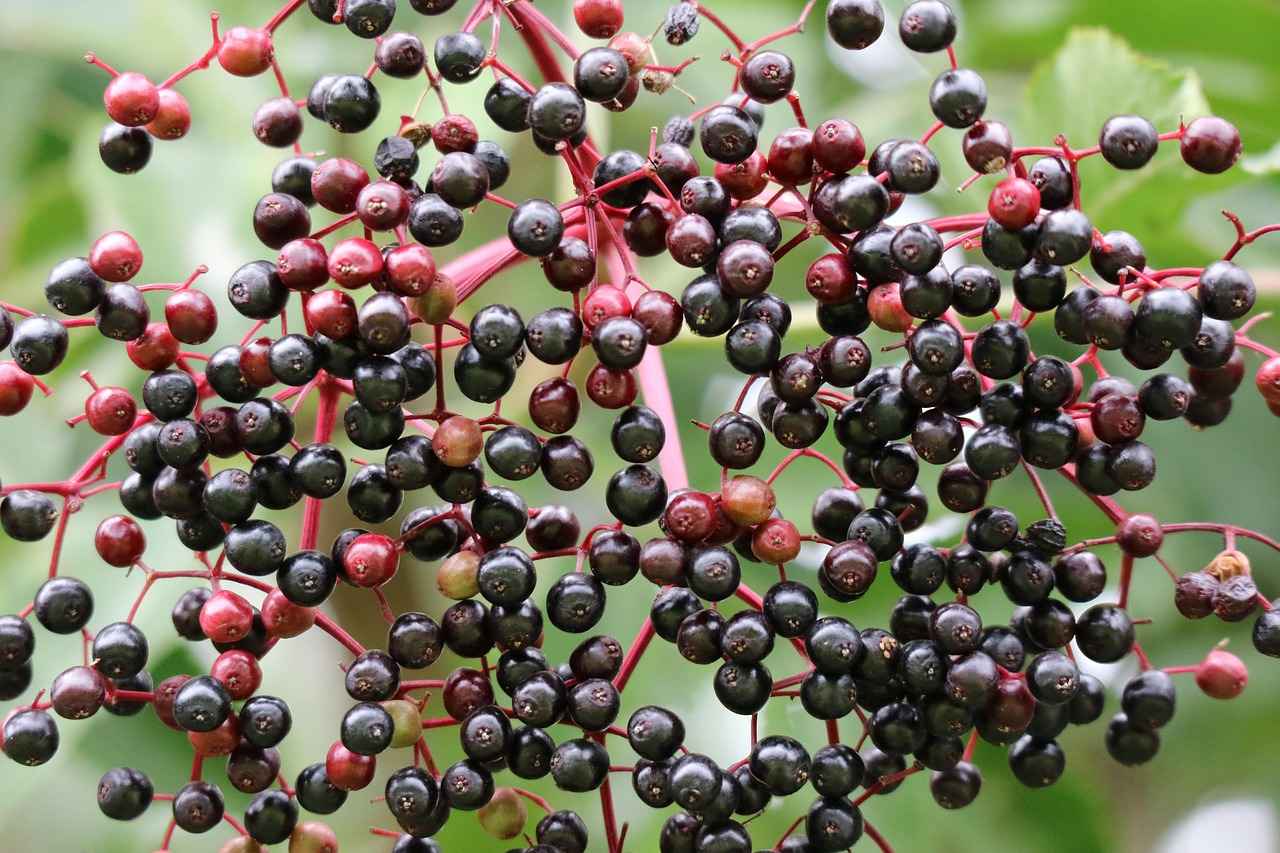
3. Immune Support with Elderberry Extract
Elderberry extract has gained significant attention for its remarkable ability to support the immune system. This section delves into the various mechanisms through which elderberry enhances the body’s defenses against infections and illnesses, making it a popular choice for those seeking natural health remedies.
The primary appeal of elderberry lies in its rich composition of antioxidants, particularly flavonoids, which play a crucial role in protecting the body from oxidative stress. Oxidative stress can weaken the immune system, making the body more susceptible to illnesses. By neutralizing free radicals, elderberry helps maintain the integrity of immune cells and promotes overall health.
- Antiviral Properties: Research indicates that elderberry extract may inhibit the replication of certain viruses, including those responsible for the common cold and influenza. This action can potentially reduce the duration and severity of symptoms.
- Inflammation Reduction: Elderberry has anti-inflammatory properties that can help alleviate symptoms associated with respiratory infections. Reducing inflammation can lead to a more effective immune response.
- Immune Modulation: Elderberry extract may enhance the production of cytokines, which are signaling molecules that play a vital role in regulating immune responses. This modulation can help the body respond more effectively to pathogens.
Several clinical studies have supported the immune-boosting effects of elderberry. For instance, a study published in the Journal of International Medical Research found that elderberry extract significantly reduced flu symptoms in participants compared to a placebo.
Incorporating elderberry into your daily routine can be an effective way to bolster your immune system. Whether consumed as a syrup, capsule, or tea, elderberry offers a delicious and nutritious option for enhancing your overall health.
In conclusion, elderberry extract serves as a powerful ally in supporting the immune system. Its unique combination of antioxidants, antiviral properties, and anti-inflammatory effects makes it a valuable addition to any wellness regimen.
3.1 How Elderberry Affects Viral Infections
How Elderberry Affects Viral Infections
Research indicates that elderberry extract can play a significant role in combating viral infections, particularly in reducing the duration and severity of symptoms associated with the common cold and influenza. Understanding the underlying mechanisms can help individuals appreciate its potential benefits.
The active compounds in elderberry, primarily anthocyanins, are known for their potent antioxidant properties. These compounds help to neutralize free radicals in the body, thus supporting overall health. More importantly, they have been shown to interfere with the replication of viruses, making it harder for them to spread within the body. Studies suggest that elderberry extract can inhibit the ability of viruses to penetrate healthy cells, effectively reducing the likelihood of infection.
In clinical trials, participants who consumed elderberry extract reported a shorter duration of flu symptoms compared to those who received a placebo. Symptoms such as fever, headache, and muscle aches were significantly alleviated, showcasing elderberry’s potential as a natural remedy. This effect is attributed to the extract’s ability to boost the immune response, helping the body to fight off infections more effectively.
Furthermore, elderberry’s antiviral effects may extend beyond just cold and flu viruses. Preliminary research indicates that it might also be effective against other viral strains, including some that cause respiratory illnesses. This broad-spectrum activity makes elderberry a valuable addition to one’s health regimen, especially during cold and flu season.
In conclusion, the science behind elderberry extract highlights its potential as a natural antiviral agent. Incorporating it into your diet may not only enhance your immune function but also provide a proactive approach to managing viral infections.
3.2 Clinical Studies on Elderberry
Clinical Studies on Elderberry: A Deep Dive into Immune Support
Elderberry, derived from the Sambucus plant, has gained significant attention in recent years due to its potential health benefits, particularly in supporting the immune system. A multitude of clinical studies have explored the efficacy of elderberry in combating viral infections and enhancing overall health. This section delves into some of the most significant research findings that highlight the importance of elderberry in modern health practices.
| Study | Findings | Year |
|---|---|---|
| 1. Clinical Trial on Influenza | Participants taking elderberry extract reported a reduction in flu symptoms and duration. | 2004 |
| 2. Elderberry and Cold Symptoms | Elderberry was shown to alleviate cold symptoms significantly faster than a placebo. | 2009 |
| 3. Antiviral Properties | Laboratory studies indicate that elderberry extract can inhibit the replication of certain viruses. | 2016 |
One notable study published in the Journal of International Medical Research in 2004 demonstrated that elderberry extract could reduce the duration of flu symptoms by an average of four days. In a randomized, double-blind, placebo-controlled trial, participants who took elderberry reported significant improvements in symptoms such as fever, headache, and muscle aches.
Moreover, a 2009 study found that elderberry extract not only shortened the duration of cold symptoms but also improved overall wellness in participants. The results suggested that elderberry could be an effective natural remedy for those suffering from upper respiratory infections.
In addition to these clinical trials, laboratory research has shown that elderberry possesses antiviral properties. A study conducted in 2016 indicated that elderberry extract could inhibit the replication of various strains of the influenza virus. These findings suggest that elderberry may play a crucial role in preventing viral infections and bolstering the immune response.
In conclusion, the body of research surrounding elderberry is compelling and supports its use as a natural supplement for immune health. As more studies emerge, the potential benefits of elderberry will likely become even clearer, encouraging its integration into health and wellness routines.

4. Traditional Uses of Elderberry
Elderberry has been utilized in traditional medicine across various cultures for centuries, showcasing its significance in healing practices. This section delves into the rich history and diverse applications of elderberry, highlighting its role in folk remedies and its evolution into modern health solutions.
Historically, elderberry has been revered for its therapeutic properties. In ancient times, it was commonly used to treat a range of ailments, including coughs, fevers, and inflammation. The Native American tribes utilized elderberry to create syrups and teas, believing in its ability to support respiratory health and boost immunity. Similarly, in European folk medicine, elderberry was often prescribed for colds and flu, demonstrating its widespread acceptance as a natural remedy.
In addition to its medicinal uses, elderberry has cultural significance. For instance, in some cultures, the elder tree is considered sacred, symbolizing protection and healing. The flowers and berries were often incorporated into rituals and celebrations, further embedding elderberry into the fabric of traditional practices.
As we transitioned into the modern era, the use of elderberry has adapted while retaining its historical roots. Today, elderberry is available in various forms, including extracts, syrups, and capsules, making it more accessible to a wider audience. These modern formulations are designed to maintain the traditional benefits while enhancing convenience for consumers.
Research in recent years has validated many of the historical claims surrounding elderberry’s health benefits. Clinical studies have shown its efficacy in reducing the duration and severity of cold and flu symptoms, affirming its place in contemporary health practices.
In summary, the traditional uses of elderberry reflect a deep-rooted history in various cultures, showcasing its significance as a natural remedy. As we continue to explore its benefits, elderberry remains a vital component of both traditional and modern health regimens.
4.1 Elderberry in Folk Medicine
Elderberry has long been a staple in folk medicine, revered for its healing properties across various cultures. Historically, this potent berry has been utilized to address a myriad of ailments, particularly coughs, fevers, and inflammation. Its rich history is not only fascinating but also highlights the importance of traditional knowledge in modern health practices.
In many indigenous cultures, elderberry was considered a sacred plant. Native American tribes, for instance, used elderberry for its antiviral properties, often preparing teas and tinctures to alleviate cold and flu symptoms. Similarly, in European folk medicine, elderberry was a common remedy for respiratory issues, with the flowers and berries being brewed into syrups and wines to soothe coughs and reduce fever.
In addition to respiratory health, elderberry has been employed for its anti-inflammatory effects. Traditional healers often recommended elderberry for joint pain and swelling, believing that its natural compounds could help reduce inflammation in the body. This practice has been passed down through generations, emphasizing the berry’s significance in holistic health approaches.
Furthermore, elderberry’s role in promoting overall wellness cannot be overlooked. It has been used to enhance immune function, with many cultures recognizing its potential to ward off infections and support the body during illness. The berries are rich in vitamins and antioxidants, which contribute to their status as a superfood in both historical and contemporary contexts.
As we continue to explore the benefits of elderberry, it is essential to acknowledge the wisdom embedded in traditional practices. The historical applications of elderberry not only serve as a testament to its effectiveness but also inspire ongoing research and interest in its health benefits.
- Historical Uses: Coughs, fevers, inflammation
- Cultural Significance: Sacred plant in many indigenous cultures
- Modern Implications: Continued research into health benefits
In conclusion, the enduring legacy of elderberry in folk medicine showcases its remarkable versatility and importance in natural healing. As we embrace its benefits today, we also honor the traditions that have kept this powerful berry at the forefront of wellness.
4.2 Modern Adaptations of Elderberry Use
Modern Adaptations of Elderberry Use
In recent years, elderberry has gained immense popularity as a natural remedy, leading to the development of various modern formulations that retain its traditional benefits. These adaptations have made elderberry more accessible and convenient for consumers seeking to enhance their health.
Today, elderberry is commonly found in several forms, including:
- Syrups: Often made from concentrated elderberry juice, these syrups are sweetened and can be taken directly or added to beverages.
- Capsules: These provide a convenient way to consume elderberry extract without the need for preparation, ensuring consistent dosing.
- Gummies: A popular choice, especially among children, elderberry gummies combine the benefits of elderberry with a tasty treat.
- Teas: Elderberry tea blends offer a soothing way to enjoy the health benefits while also providing hydration.
These modern adaptations not only make elderberry easier to incorporate into daily routines but also allow for greater flexibility in usage. For instance, syrups can be taken during cold and flu season to support immune health, while capsules offer a no-fuss option for those on the go.
Moreover, many of these products are formulated to enhance the natural properties of elderberry. For example, elderberry syrups often include other immune-boosting ingredients such as honey or ginger, which further amplify their health benefits. This blending of traditional knowledge with modern science helps retain the essence of elderberry while catering to contemporary health needs.
As consumers become more health-conscious, the demand for elderberry products continues to rise. The flexibility and efficacy of these modern formulations ensure that elderberry remains a staple in natural health practices, bridging the gap between traditional uses and modern wellness.

5. How to Incorporate Elderberry Extract into Your Diet
Incorporating elderberry extract into your daily routine can be highly beneficial. This powerful superfood is known for its numerous health benefits, particularly in supporting the immune system. Below are some practical tips on how to effectively use elderberry extract in various forms.
- Elderberry Syrup: One of the most popular ways to consume elderberry is through syrup. You can purchase ready-made syrups or make your own at home. To create a homemade syrup, combine fresh or dried elderberries with water and sweetener of choice, simmer, strain, and store in a bottle. This syrup can be added to drinks or taken directly.
- Elderberry Capsules: For those who prefer a more convenient option, elderberry extract is available in capsule form. This allows for easy dosage and is ideal for on-the-go consumption. Always follow the recommended dosage on the packaging.
- Elderberry Tea: Another delightful way to enjoy elderberry is by brewing it as a tea. Simply steep dried elderberries in hot water for several minutes. You can enhance the flavor by adding honey or lemon.
- Incorporate into Smoothies: Adding elderberry extract to your daily smoothie can boost its nutritional value. Blend it with fruits, greens, and yogurt for a delicious and healthful drink.
Dosage Recommendations: Understanding the appropriate dosage of elderberry extract is crucial for safety and effectiveness. Generally, adults can take 1 to 2 tablespoons of syrup daily, while capsules typically recommend 300-600 mg per day. However, it is advisable to consult with a healthcare provider for personalized guidance.
Conclusion: By incorporating elderberry extract into your diet through various methods, you can enjoy its health benefits while enhancing your overall wellness. Whether in syrup, capsules, or tea, elderberry is a versatile addition to your daily routine.
5.1 Elderberry Syrup Recipes
Creating homemade elderberry syrup is not only a delightful culinary adventure but also a fantastic way to harness the numerous health benefits of elderberries. This syrup can be used in various ways, from mixing it into drinks to drizzling over pancakes. Below are some simple yet effective recipes to help you craft your own elderberry syrup at home.
| Ingredients | Instructions |
|---|---|
|
|
For an added twist, consider incorporating spices like cinnamon or ginger to enhance the flavor profile of your syrup. These spices not only add warmth but also come with their own health benefits.
Another variation is to use fresh elderberries if available. Simply replace the dried elderberries with an equal amount of fresh ones, and follow the same steps.
Enjoy your homemade elderberry syrup by mixing it into your favorite beverages, drizzling it over desserts, or taking it by the spoonful for a health boost. The versatility of elderberry syrup makes it a delightful addition to your pantry!
5.2 Dosage Recommendations
Understanding the appropriate dosage of elderberry extract is crucial for ensuring both safety and effectiveness. The right dosage can vary depending on several factors, including age, health condition, and the specific product being used. Below are some general guidelines to help you navigate the recommended dosages for elderberry extract.
- Adults: The typical dosage for adults ranges from 300 mg to 600 mg of elderberry extract taken twice daily, especially during cold and flu season.
- Children: For children aged 1 to 12 years, a safe dosage is generally 150 mg to 300 mg taken once or twice a day. Always consult a pediatrician before giving elderberry to children.
- Pregnant or Nursing Women: It is advisable for pregnant or nursing women to avoid elderberry unless recommended by a healthcare professional due to limited research on safety.
When considering elderberry extract, it is also important to pay attention to the form of the extract:
| Form of Elderberry | Recommended Dosage |
|---|---|
| Elderberry Syrup | 1 tablespoon (15 ml) up to 3 times daily |
| Elderberry Capsules | 1-2 capsules (500 mg each) twice daily |
| Elderberry Gummies | 1-2 gummies (depending on concentration) daily |
Before starting any new supplement regimen, it is essential to consult with a healthcare provider, especially if you are taking other medications or have underlying health conditions. Proper dosage is vital not only for maximizing the benefits of elderberry extract but also for minimizing the risk of potential side effects.
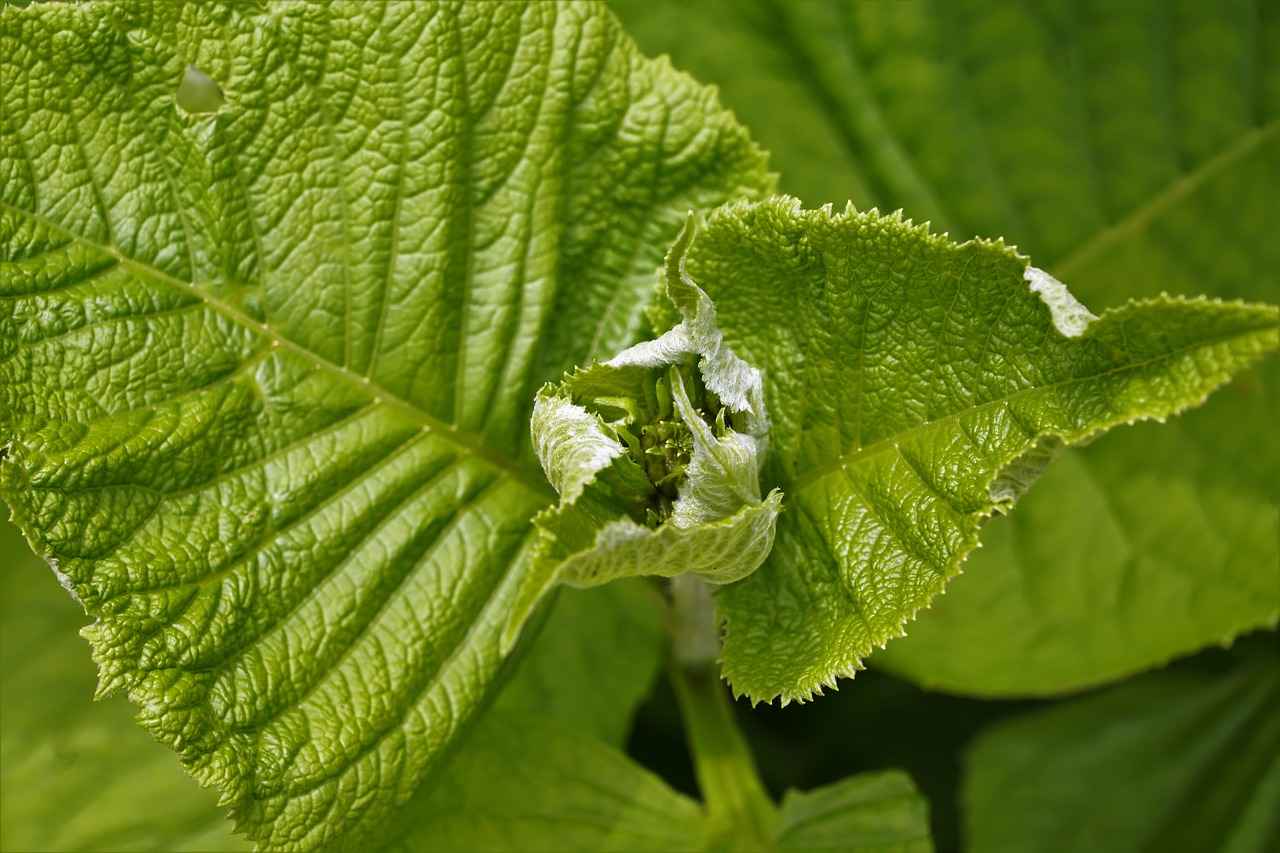
6. Potential Side Effects and Precautions
Potential Side Effects and Precautions
While elderberry is generally regarded as safe for most individuals, it is essential to be aware of potential side effects and take necessary precautions when incorporating it into your health regimen. This section addresses common concerns and provides guidelines for safe use.
- 6.1 Allergies and Interactions
Some individuals may experience allergic reactions to elderberry, which can manifest as skin rashes, itching, or gastrointestinal discomfort. It is crucial to monitor your body’s response when trying elderberry for the first time. Additionally, elderberry may interact with certain medications, particularly those that suppress the immune system. Always consult with a healthcare professional before starting any new supplement, especially if you are on medication.
- 6.2 Recommended Precautions
Before using elderberry, consider the following precautions:
- Pregnancy and Nursing: Pregnant or nursing women should avoid elderberry unless advised by a healthcare provider, as its effects on pregnancy and lactation are not fully understood.
- Underlying Health Conditions: Individuals with autoimmune diseases or those on immunosuppressive therapies should exercise caution, as elderberry may stimulate the immune system.
- Dosage Guidelines: Adhering to recommended dosages is vital. Overconsumption of elderberry products, particularly raw berries, can lead to nausea, vomiting, and diarrhea.
In summary, while elderberry offers numerous health benefits, it is important to approach its use with awareness and caution. Consulting with a healthcare professional can help ensure that you safely enjoy the potential advantages of this powerful natural remedy.
6.1 Allergies and Interactions
Allergic Reactions and Interactions with Elderberry
Elderberry, derived from the Sambucus tree, is celebrated for its numerous health benefits, particularly in supporting the immune system. However, it is essential to recognize that some individuals may experience allergic reactions when consuming elderberry products. Understanding these potential allergies and interactions with medications can help ensure safe usage.
Common Allergic Reactions
- Skin Reactions: Some users may develop rashes, hives, or other skin irritations after consuming elderberry.
- Respiratory Issues: Allergic reactions may also manifest as difficulty breathing, wheezing, or nasal congestion.
- Gastrointestinal Distress: Symptoms like nausea, vomiting, or diarrhea can occur in sensitive individuals.
Medication Interactions
It is crucial to consult with a healthcare provider before incorporating elderberry into your routine, especially if you are on medication. Elderberry may interact with:
- Diuretics: Elderberry can have a mild diuretic effect, which may enhance the effects of diuretic medications.
- Immunosuppressants: As elderberry boosts the immune system, it could counteract the effects of immunosuppressive drugs.
- Blood Sugar Medications: Elderberry may lower blood sugar levels, potentially affecting diabetes medications.
Safe Usage Guidelines
To use elderberry safely:
- Start with a low dose to gauge your body’s reaction.
- Consult a healthcare professional, particularly if you have underlying health conditions or are pregnant or nursing.
- Avoid raw elderberries, as they can be toxic when unprocessed.
In summary, while elderberry offers significant health benefits, being aware of allergic reactions and potential interactions with medications is essential for safe consumption. Always prioritize health and well-being by seeking professional advice.
6.2 Recommended Precautions
Recommended Precautions
Before incorporating elderberry into your health regimen, it is essential to take certain precautions, especially for specific groups of individuals. This section outlines vital considerations to ensure safe use.
- Pregnant Women: Pregnant women should exercise caution when considering elderberry supplements. While some studies suggest potential benefits, the effects on fetal development are not fully understood. It is advisable to consult a healthcare provider before use.
- Nursing Mothers: Similar to pregnancy, nursing mothers should be cautious. Although elderberry is generally considered safe, there is limited research on its effects during breastfeeding. Consulting with a healthcare professional is recommended.
- Individuals with Autoimmune Disorders: Those with autoimmune conditions should approach elderberry with care. Elderberry may stimulate the immune system, which could exacerbate certain autoimmune diseases. It is crucial to seek medical advice before starting any elderberry regimen.
- People on Immunosuppressive Medications: If you are taking medications that suppress the immune system, such as corticosteroids or chemotherapy drugs, it is important to discuss the use of elderberry with your doctor. Elderberry could interfere with the effectiveness of these medications.
- Allergies: Individuals with known allergies to elderberry or related plants should avoid using elderberry products. Allergic reactions can range from mild to severe, and it’s essential to be aware of your sensitivities.
By taking these precautions, individuals can enjoy the potential benefits of elderberry while minimizing risks. Always prioritize safety and consult healthcare professionals when in doubt.

7. Elderberry Extract vs. Other Supplements
Elderberry extract has gained popularity as a natural health supplement, particularly for its immune-boosting properties. This section aims to provide a detailed comparison of elderberry extract with other well-known herbal remedies, helping you make informed choices about your health supplements.
When considering health supplements, it’s essential to understand how elderberry extract stacks up against other popular options. This comparison will focus on two widely used supplements: Echinacea and Vitamin C.
Echinacea is often used to enhance the immune system and prevent colds. Both elderberry and echinacea possess antiviral properties, but they work in different ways. Elderberry extract is known for its ability to shorten the duration of cold and flu symptoms, while echinacea is believed to help prevent these illnesses from occurring in the first place. Studies indicate that elderberry may be more effective in reducing the severity of symptoms once an illness has started.
Vitamin C is a well-established vitamin that supports immune health and acts as a powerful antioxidant. While both elderberry and vitamin C contribute to immune function, elderberry offers additional benefits, such as its high level of flavonoids, which provide anti-inflammatory effects. Furthermore, elderberry extract may be more palatable for those who dislike taking pills, as it is often available in syrup form.
| Supplement | Key Benefits | Best Use |
|---|---|---|
| Elderberry Extract | Reduces cold/flu symptoms, rich in antioxidants | During illness |
| Echinacea | Prevents colds, supports immune function | Before illness |
| Vitamin C | Boosts immune health, antioxidant | Daily health maintenance |
In conclusion, while elderberry extract, echinacea, and vitamin C all offer unique benefits, they can also complement each other. Incorporating a variety of these supplements into your wellness routine may provide comprehensive support for your immune system.
7.1 Elderberry vs. Echinacea
Elderberry and Echinacea are two of the most popular herbal supplements known for their immune-boosting properties. Understanding the differences and similarities between these two can help you make informed choices about your health.
Elderberry (Sambucus nigra) is derived from the berries of the elder tree and is celebrated for its rich antioxidant content, particularly anthocyanins. Echinacea, on the other hand, is a group of flowering plants in the daisy family, often used to prevent or treat colds and other respiratory infections.
- Both are known for their potential to enhance immune function.
- They contain various phytochemicals that may help reduce inflammation.
- Both supplements can be found in various forms, including capsules, teas, and syrups.
- Elderberry is primarily used for its antiviral properties, particularly in reducing the duration and severity of cold and flu symptoms.
- Echinacea is often used to prevent colds and is thought to stimulate the immune system.
- The active compounds in elderberry are mainly antioxidants, while echinacea contains alkylamides and polysaccharides that influence immune response.
Research indicates that elderberry may be effective in combating viral infections, with studies showing it can shorten the duration of flu symptoms. In contrast, echinacea has mixed results regarding its effectiveness in preventing colds, with some studies supporting its use and others showing little benefit.
While both elderberry and echinacea offer immune support, they work through different mechanisms and may be beneficial in different contexts. Consulting with a healthcare provider can help determine which supplement is best for your needs.
7.2 Elderberry vs. Vitamin C Supplements
Elderberry and Vitamin C are both renowned for their immune-boosting properties, yet they function in unique ways that can complement each other. This section delves into how these two supplements can work together to enhance overall health.
Vitamin C, a water-soluble vitamin, is essential for various bodily functions, particularly in supporting the immune system. It plays a crucial role in the production of collagen, aids in the absorption of iron, and promotes overall skin health. Its antioxidant properties help protect cells from damage caused by free radicals, making it a popular choice for those looking to bolster their immunity, especially during cold and flu seasons.
On the other hand, elderberry extract, derived from the berries of the Sambucus tree, is rich in antioxidants, particularly flavonoids. These compounds are known for their ability to reduce inflammation and combat oxidative stress. Elderberry has been shown in several studies to potentially shorten the duration and severity of common viral infections, such as the flu.
When considering the use of elderberry alongside Vitamin C, it is important to note that they can enhance each other’s effects. While Vitamin C provides foundational immune support and cellular protection, elderberry can offer additional antiviral benefits. Together, they create a synergistic effect that may lead to improved health outcomes.
Moreover, elderberry’s natural sweetness makes it an appealing addition to Vitamin C-rich foods, such as smoothies or juices. This combination not only boosts immunity but also adds flavor and variety to your diet.
In conclusion, while both elderberry and Vitamin C are effective on their own, their combined use may provide a more comprehensive approach to supporting immune health. Always consult with a healthcare professional before starting any new supplementation regimen, especially if you have underlying health conditions or are taking medications.

8. The Future of Elderberry Research
The Future of Elderberry Research is a rapidly evolving field that holds great promise for health enthusiasts and researchers alike. As the interest in natural remedies grows, elderberry, known for its numerous health benefits, is at the forefront of scientific inquiry. Ongoing studies continue to unveil its potential, paving the way for future applications and innovations.
Emerging research highlights several areas of interest in elderberry studies. One notable focus is its antiviral properties. Recent clinical trials have shown that elderberry extract may significantly reduce the duration and severity of cold and flu symptoms. These findings suggest that elderberry could play a crucial role in public health strategies aimed at combating seasonal illnesses.
Another exciting area of exploration is the potential of elderberry in chronic disease management. Studies are investigating how the high antioxidant content in elderberries can help mitigate the effects of oxidative stress, which is linked to conditions such as heart disease and diabetes. Understanding the mechanisms behind these benefits could lead to new therapeutic uses for elderberry extract.
Furthermore, researchers are examining the bioavailability of elderberry compounds. This involves studying how well the body absorbs and utilizes the beneficial components of elderberry, which is essential for determining effective dosages and formulations. Enhanced understanding in this area could lead to the development of more potent elderberry products.
As we look to the future, innovations in elderberry products are also on the rise. Companies are exploring new delivery methods, such as gummies, powders, and fortified foods, to make elderberry more accessible to consumers. These innovations aim to maintain the traditional benefits while catering to modern dietary preferences.
In conclusion, the future of elderberry research is bright, with significant opportunities for new discoveries. As studies continue to reveal the depth of its benefits, elderberry may become an even more integral part of health and wellness practices worldwide.
8.1 Innovations in Elderberry Products
Innovations in elderberry formulations are on the rise. As the world increasingly turns to natural remedies, elderberry supplements are gaining attention for their health benefits. Recent advancements in the formulation and delivery of elderberry products are making these supplements more effective and accessible than ever before.
One of the most exciting developments is the introduction of standardized extracts. These extracts ensure that each dose contains a consistent amount of active compounds, such as flavonoids and antioxidants, which are believed to be responsible for elderberry’s immune-boosting properties. This standardization not only enhances effectiveness but also provides consumers with reliable dosing information.
Additionally, manufacturers are now utilizing advanced extraction methods that preserve the delicate compounds found in elderberries. Techniques such as cold-press extraction and supercritical CO2 extraction are becoming more common. These methods minimize heat exposure, which can degrade beneficial nutrients, ensuring that the final product retains its full spectrum of health benefits.
Moreover, the rise of functional foods has led to innovative elderberry-infused products, including beverages, gummies, and snacks. These products not only provide the health benefits of elderberry but also offer convenient and enjoyable consumption methods. For instance, elderberry-infused teas and smoothies are becoming popular choices for those looking to boost their immune system while enjoying a tasty treat.
Furthermore, research into the synergistic effects of combining elderberry with other natural ingredients is paving the way for new formulations. Products that blend elderberry with vitamin C, zinc, and probiotics are emerging, targeting comprehensive immune support.
In conclusion, the innovations in elderberry formulations are transforming how we approach health and wellness. With standardized extracts, advanced extraction methods, and the integration of elderberry into functional foods, these developments not only enhance the efficacy of elderberry supplements but also make them more appealing to consumers.
8.2 Areas for Further Study
Areas for Further Study
In the realm of elderberry research, identifying gaps in current studies is crucial for unlocking its full potential. While existing research highlights various benefits of elderberry, there remain significant areas that warrant further investigation. This section outlines several key areas where additional studies could lead to new discoveries about this remarkable plant.
- 1. Mechanisms of Action: Understanding the specific mechanisms by which elderberry exerts its health benefits is essential. While its antioxidant and anti-inflammatory properties are acknowledged, more research is needed to elucidate how these compounds interact at the cellular level.
- 2. Long-term Effects: Most studies focus on short-term benefits of elderberry consumption. Research examining the long-term effects of regular elderberry intake on chronic diseases, such as diabetes or heart disease, could provide valuable insights.
- 3. Dosage and Bioavailability: Determining the optimal dosage for different populations, including children and the elderly, remains an area of interest. Additionally, studies on the bioavailability of elderberry compounds can help understand how effectively the body absorbs and utilizes these nutrients.
- 4. Interactions with Other Supplements: As elderberry is often used alongside other supplements, research into potential interactions could provide guidance for safe and effective use, especially for individuals taking multiple dietary aids.
- 5. Cultivation and Sustainability: Investigating the best agricultural practices for cultivating elderberry can contribute to sustainable production. This includes exploring the impact of different growing conditions on the phytochemical composition of elderberries.
- 6. Variability Among Species: Different species of elderberry may have varying health benefits. Comparative studies could reveal which species are most effective for specific health outcomes.
By focusing on these areas, researchers can pave the way for innovative applications of elderberry in health and wellness, ultimately enriching our understanding of this powerful natural remedy.

9. Conclusion: Embracing Elderberry for Health
In summary, elderberry extract presents a multitude of health advantages, especially in the realm of immune support. This natural remedy has gained popularity due to its impressive nutrient profile, which includes vital vitamins and antioxidants that contribute to overall health. By integrating elderberry extract into your daily wellness routine, you can significantly enhance your vitality and well-being.
The benefits of elderberry extend beyond mere immune support. Its rich content of antioxidants helps combat oxidative stress, which is crucial for maintaining cellular health. This protective effect is essential in today’s fast-paced world, where environmental factors can lead to increased free radical production in the body.
Moreover, elderberry extract has been shown to reduce the duration and severity of common colds and flu symptoms. Several clinical studies support its effectiveness, making it a valuable addition to your health arsenal, especially during the colder months when viral infections are more prevalent.
Incorporating elderberry into your diet can be both easy and enjoyable. From homemade syrups to capsules, there are various ways to consume this superfood. Not only does it taste delightful, but it also provides a natural boost to your immune system, giving you the resilience needed to fend off illnesses.
However, as with any supplement, it is essential to approach elderberry extract with caution. Understanding proper dosages and being aware of potential side effects is crucial, particularly for individuals with underlying health conditions or those who are pregnant or nursing.
Ultimately, embracing elderberry extract can lead to a healthier lifestyle and improved immune function. By exploring its benefits and incorporating it into your daily routine, you can take proactive steps towards enhancing your overall health and vitality.
9.1 Final Thoughts on Elderberry
Elderberry has long been recognized as a potent natural remedy, boasting a rich history that dates back centuries. Its significance in modern health practices cannot be overstated, as it continues to gain popularity among those seeking natural solutions for improved well-being.
In recent years, elderberry has emerged as a powerful ally in supporting immune health. With its high concentration of vitamins, particularly Vitamin C, and an impressive array of antioxidants, elderberry extract has gained traction as a go-to supplement during cold and flu seasons. Research indicates that elderberry may help reduce the severity and duration of viral infections, making it a valuable addition to any health regimen.
Moreover, the nutritional profile of elderberry is impressive. It contains essential vitamins, minerals, and dietary fiber, all of which contribute to overall health. The presence of antioxidants helps combat oxidative stress, protecting the body from cellular damage. This multifaceted approach to health makes elderberry a unique and versatile supplement.
Historically, elderberry has been utilized in various cultures for its medicinal properties. From treating coughs and fevers to reducing inflammation, its traditional uses have paved the way for modern adaptations, such as syrups and capsules. These contemporary formulations retain the beneficial properties of elderberry, allowing for easier incorporation into daily routines.
As we look to the future, ongoing research into elderberry’s health benefits continues to unveil new possibilities. With innovations in product formulations and emerging studies, the potential of this remarkable berry is still being explored.
In conclusion, embracing elderberry as part of a holistic approach to health can lead to enhanced well-being. Its rich history, combined with modern scientific insights, highlights its importance in contemporary health practices. Whether you are looking to boost your immune system or explore its other health benefits, elderberry is a natural remedy worth considering.
9.2 Encouragement to Explore Elderberry
Embrace the Power of Elderberry in Your Health Journey
As you consider ways to enhance your health regimen, elderberry emerges as a remarkable option. With its rich history and numerous health benefits, incorporating elderberry into your daily routine can be a transformative step towards better well-being.
Why Elderberry?
- Rich in Antioxidants: Elderberries are loaded with antioxidants, which play a crucial role in neutralizing harmful free radicals in the body.
- Immune System Support: Known for its immune-boosting properties, elderberry can help your body fend off colds and flu.
- Traditional and Modern Uses: From folk medicine to contemporary supplements, elderberry has maintained its relevance across generations.
How to Start Using Elderberry
- Elderberry Syrup: One of the most popular forms, elderberry syrup can be easily added to beverages or taken directly.
- Capsules: For those who prefer a quick and convenient option, elderberry capsules are widely available.
- Teas and Jams: Explore creative ways to incorporate elderberry into your diet through teas or homemade jams.
Potential Benefits
Research indicates that regular consumption of elderberry can lead to improved immune function, reduced inflammation, and enhanced overall health. By integrating this superfood into your lifestyle, you may experience these benefits firsthand.
Final Thoughts
In conclusion, elderberry is more than just a trendy health supplement; it is a time-tested remedy with numerous advantages. We encourage you to delve deeper into the world of elderberry and discover how it can play a vital role in your health journey.
Explore Further
As you embark on this journey, consider researching elderberry’s historical uses and modern applications. The more you learn, the better equipped you’ll be to harness its full potential for your health.

